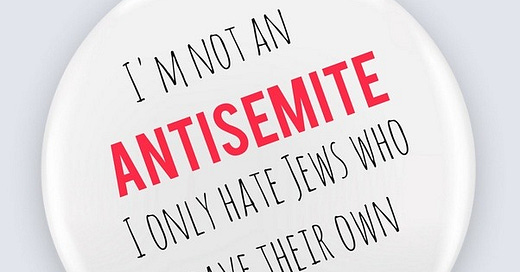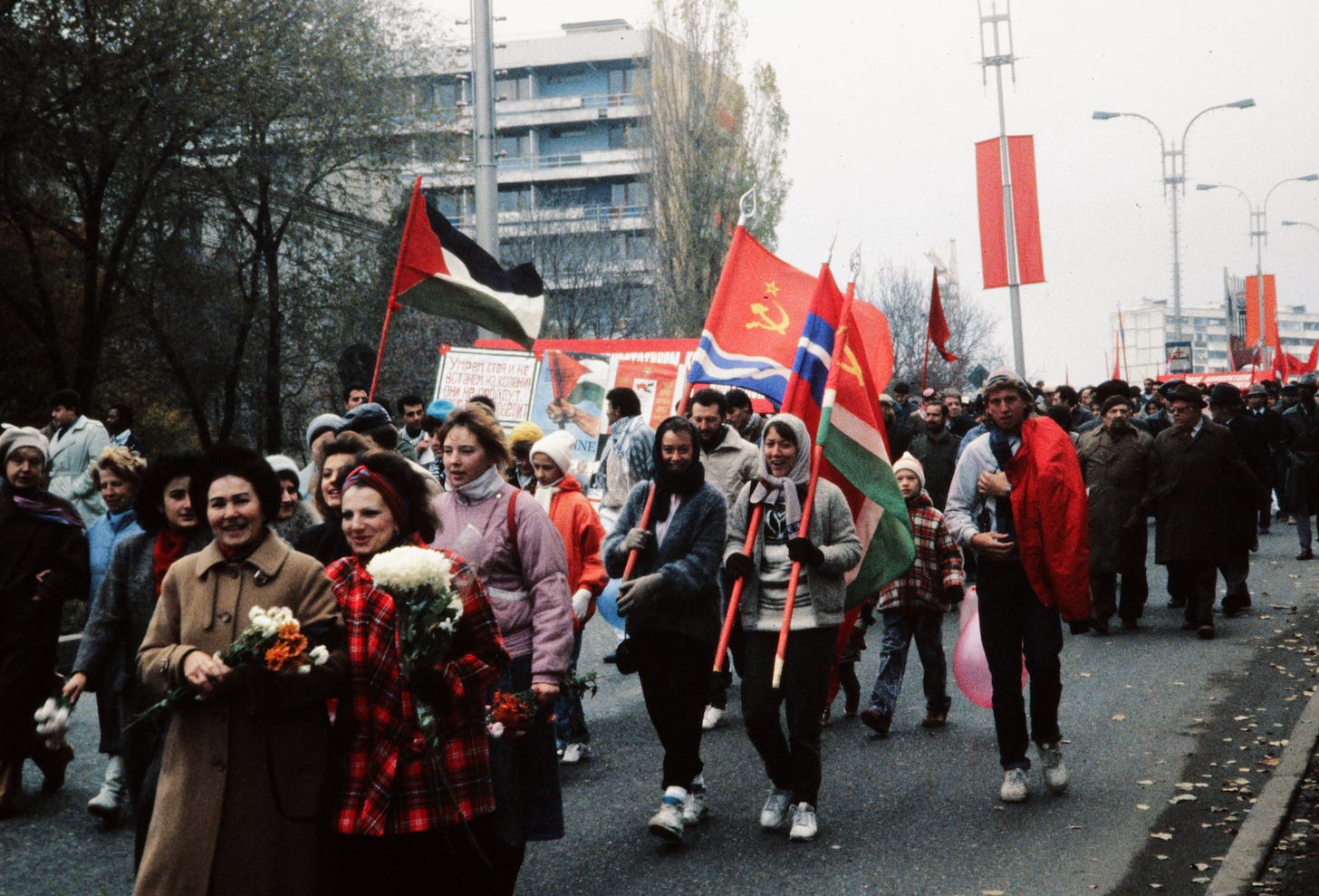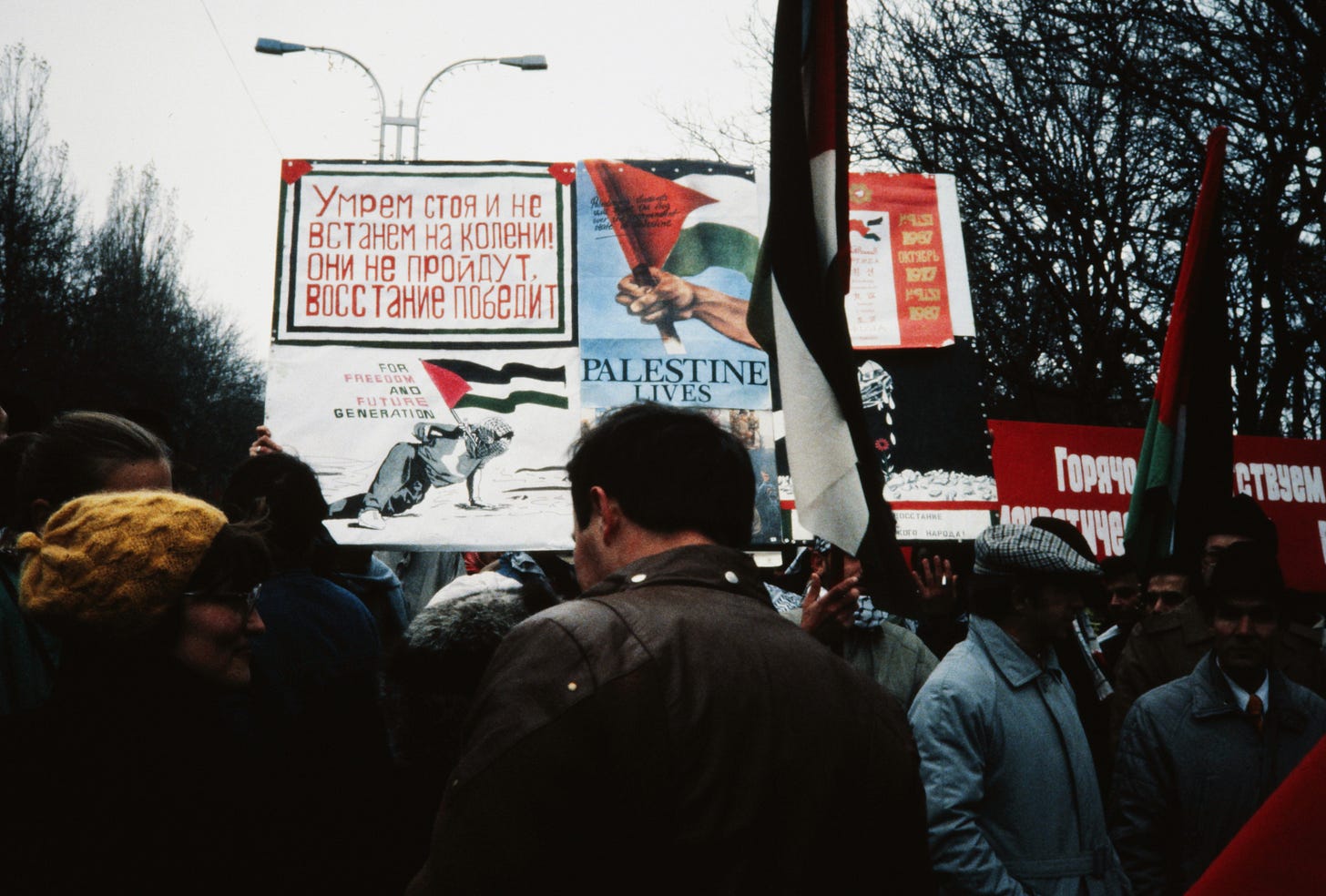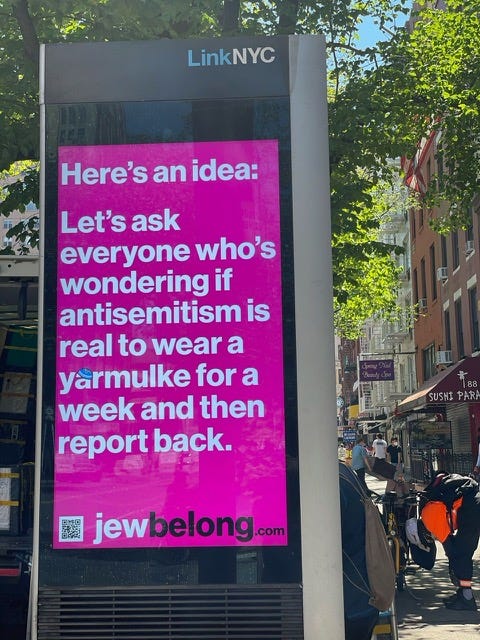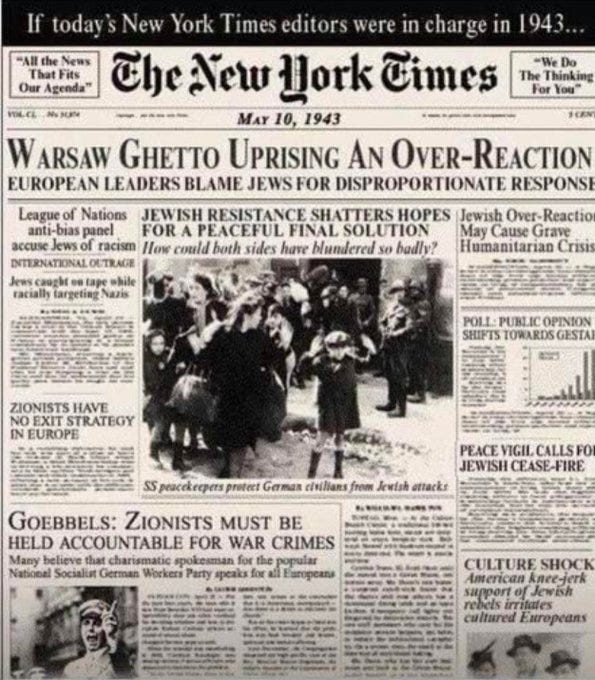Tags: 8 Min Read; Actual Raf Analysis; Relief Area
Where Are We?
From TAFKAT (The App Formerly Known As Twitter) :
I liked the Jon Stewart piece last week. Not because his perspective matches mine—it doesn’t—but because he did two rarely-done things: He mentioned (albeit did not emphasize) that Arab nation support for Palestinians is both two-faced and empty: 1) They send billions of dollars (cumulatively) yet refuse to accept even one hundred refugees (Jon names Saudi Arabia and Egypt, but this applies to all of them except perhaps Jordan.) 2) He suggests a plan that is, while probably unworkable, new and different (that these same countries create a peace keeping force to enforce a DMZ between a two-state solution).
There is a clip from weeks ago that I have been sitting on. In it, the Mayor of tiny Orland Park, Illinois (pop. 59,000!) deals with a council meeting hijacked by "cease fire now" protesters. It is 15 min long, in English. Watching is optional. (Not violent or aversive, just long.)
Most fans of this clip "cheer that upright Mayor" for standing up to radical Lefties. I find that perspective empty (despite being accurate). I keep coming back to the enormous "disconnect of consciousness" reflected. The disconnect we all experience. The Mayor, a former U.S. serviceman, prepared for the meeting with a multi-page history of the region, which he reads into the meeting minutes. One of the things he emphasizes is something we have all said a zillion times: A state was offered to the Palestinians over and over between 1947 and 2008 and rejected: What is the basis for protesters to help a group that won't help themselves by either accepting what has been offered or proposing a constructive counter-proposal?
This is why Jon Stewart gets a couple of "Raf points:" While his perspective appears influenced by propaganda (including the river of bogus casualty figures and images flowing out of Gaza), he steps out of the usual ruts and says something new: Arab countries should put their mouth where their mouth is. (Jon points out that money doesn't matter to these countries, so "money where your mouth is" is empty.)
This brings us back to what seems to be the core issue: The gap in the conversation isn't because the two sides don't hear each other. The gap seems to be from a deeper place.
Honor/Shame Culture
The TAFKAT (The App Formerly Known As Twitter) post above is from Richard Landes. Professor Landes is a historian (not of the Middle East!). Ten years ago, he wrote an essay (worth a read) that asks us to consider: "By ignoring the honor-shame dynamic in Arab political culture, is the West keeping itself from making headway toward peace?"
Americans (and perhaps all Western Liberals) kind of understand "mafia states" (like Putin's Russia). But natural cultural blinders may prevent us from grokking cultural dynamics like honor-shame.
The honor-shame dynamic has been discussed in contexts parallel to the situation here. For example, in an article discussing negotiations with Iran over its nuclear program, Robin Wright is quoted (PDF Here):
Western experts have also picked up on the importance of this pride factor in our dealings with Iran. Robin Wright, a journalist and Atlantic contributor who has written extensively about Iran, said at a recent Brookings panel, “the best way to understand Persians is to think of the most chauvinistic Texan you know and add 5,000 years [of history] and then you begin to understand just how proud they are.”
I saw evidence of the pride aspect of Palestinian culture when I worked in the Soviet Union. An aspect of life in the USSR was meeting people unseen in the U.S.: Cubans, Citizens of Vietnam and Cambodia (as opposed to refugees—with whom I went to High School), Syrians and Palestinians. I remember seeing pasted on the walls of the Soviet university dorms photos of Palestinians using slings and making violent protests in the West Bank, tagged “What Heroes.” I was in the USSR when Saddam Hussein launched rockets at Israel. Palestinian students immediately hit the streets with signs hailing Saddam, calling him the "Bulwark of the Arab world." (Their chant: "садам хусейн: оплот арабского мира.")
Photos Above: November 1989: My students in the Pyatigorsk October Revolution day march, next to Palestinians marching with their flag. One Palestinian banner reads: “Die on our feet and not live on our knees.” The other: "они не пройдут восстание победит" -- They [Israelis] will not succeed. The [Palestinian] uprising will win.
The honor-shame dynamic is also supported by two behaviors that challenge the Western (and Jewish) mindset: First is suicide bombers/attackers/terrorists. Needs no discussion. The other is the habit of Palestinian militants to post pictures of themselves armed to the teeth. The practical effect: They become targets of the Israeli military. The emotional effect: Honor.
Above: The IDF killed Ahmed Dagharma, the commander of the Islamic Jihad's military wing in Tubas, in northeastern Samaria, during an operation in Tubas last night.
I see that Thomas Friedman has discussed the honor-shame dynamic a number of times, using adjacent language. Some samples:
...If I've learned one thing covering world affairs, it's this: The single most underappreciated force in international relations is humiliation.
...
One reason Yasir Arafat rejected the Clinton plan for a Palestinian state was that he and many followers didn't want a state handed to them by the U.S. or Israel. That would be ''humiliating.'' They wanted to win it in blood and fire. Hezbollah TV had bombarded Palestinians with stories of how the Lebanese drove the Israelis out. Palestinian militants wanted the ''dignity'' of doing the same.
October 2000 (and worth a full read) (PDF here):
Mr. Arafat had a dilemma: make some compromises, build on Mr. Barak's opening bid and try to get it closer to 100 percent -- and regain the moral high ground that way -- or provoke the Israelis into brutalizing Palestinians again, and regain the moral high ground that way. Mr. Arafat chose the latter. So instead of responding to Mr. Barak's peacemaking overture, he and his boys responded to Ariel Sharon's peace-destroying provocation. In short, the Palestinians could not deal with Barak, so they had to turn him into Sharon. And they did.
...
Of course, the Palestinians couldn't explain it in those terms, so instead they unfurled all the old complaints about the brutality of the continued Israeli occupation and settlement-building. Frankly, the Israeli checkpoints and continued settlement-building are oppressive. But what the Palestinians and Arabs refuse to acknowledge is that today's Israeli prime minister was offering them a dignified exit. It was far from perfect for Palestinians, but it was a proposal that, with the right approach, could have been built upon and widened. Imagine if when Mr. Sharon visited the Temple Mount, Mr. Arafat had ordered his people to welcome him with open arms and say, ''When this area is under Palestinian sovereignty, every Jew will be welcome, even you, Mr. Sharon.'' Imagine the impact that would have had on Israelis.
The reason the Palestinians have not adopted [peaceful protest] alternatives is because they actually want to win their independence in blood and fire. All they can agree on as a community is what they want to destroy, not what they want to build. Have you ever heard Mr. Arafat talk about what sort of education system or economy he would prefer, what sort of constitution he wants? No, because Mr. Arafat is not interested in the content of a Palestinian state, only the contours.
Let's be very clear: Palestinians have adopted suicide bombing as a strategic choice, not out of desperation. This threatens all civilization because if suicide bombing is allowed to work in Israel, then, like hijacking and airplane bombing, it will be copied and will eventually lead to a bomber strapped with a nuclear device threatening entire nations. That is why the whole world must see this Palestinian suicide strategy defeated.
The whole thing smells of fragile masculinity? Whether that is from Islam itself, intergenerational violence, or something else, I don't know. The root issue is clearly more than corruption (in the West Bank, the P.A. is corrupt in one way, and in Gaza Hamas has been corrupt in a different way).
The simplistic takeaway is what the Israeli Right says: “Arabs only understand force.” This is at best half the story. The other half of the story is: Understand the counterparty and act in ways that give them an opportunity to remain whole as they understand wholeness. It is always correct to defend oneself, and to make it clear that violence is not desired. But ignoring the full humanity of the counterparty means no progress. (This is one of the sins of Israel’s quick invasion: Why not wait a couple of days and set up a food distribution system first? Demonizing Arabs does not serve Israel’s needs at any level.)
The crisis of masculinity. It's more than degrees and suicide rates. It's international relations and the entire self image of the Muslim world? (Really?)
Seen
Alef
Translation: It is not Right and Left. It is Light and Darkness.
Bet
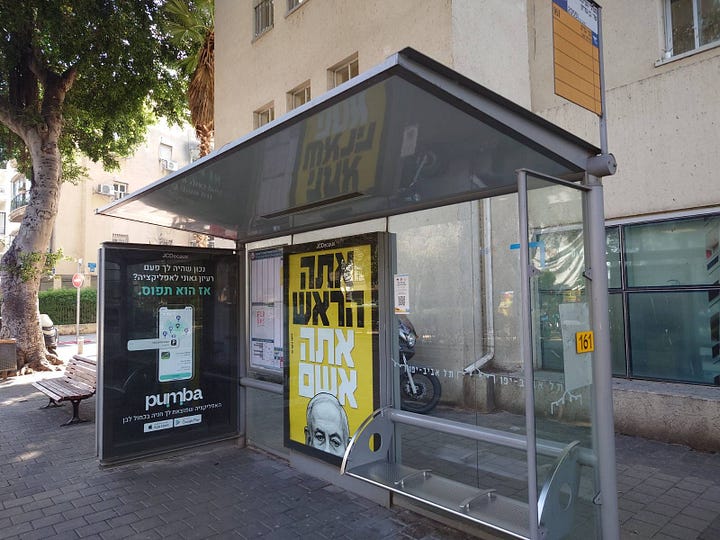
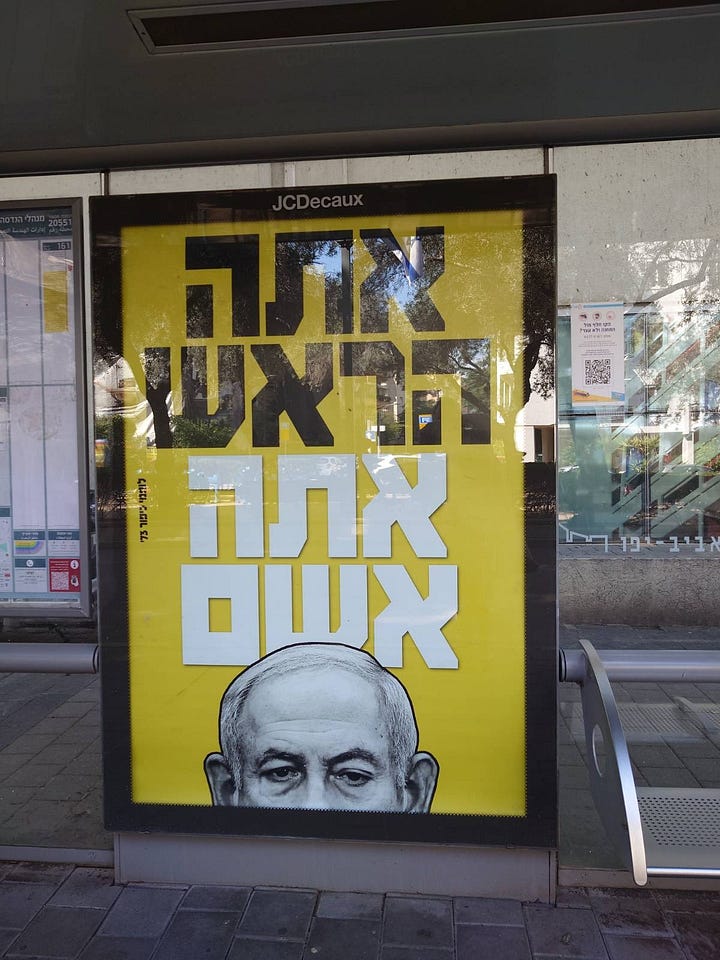
Above seen in Jerusalem and Tel Aviv:
You are the chief. You are guilty.
Gimmel
[Government leaders] Where are you? How did you let this happen? What country does things like this? They are our brothers. What about the sanctity of life? And what do you want us to tell our children? That we would leave you there? No way. No way. Don't let them die in captivity. Don't let them live in captivity. Return them all home. Now. Now. Now.
I've been searching (unsuccessfully) for this clip. Ended up filming this at a demonstration in Jerusalem last night. It is playing in most movie theaters at the end of the previews. A few days ago, a woman sitting next to me burst into tears.
Relief Area
Alef
Bet
Gimmel
Dalet: On the history of disproportionate force
For reference, the Western (and Jewish) model (holding the place of honor-shame) is: integrity-guilt. (These concepts are parallel to Erikson’s Psychosocial stages.)
On my way home this evening, a homeless guy asked if I had any food. I made a bag for him. It is raining off and on. Not a great time to be out.
Injured soldiers are starting to be visible. Twenty-somethings missing a leg. People are starting to organize support for them. English classes. The works.
A large percentage of flights have resumed. American and United are flying to Tel Aviv again. Fares vary a lot by day-of-travel. There is more English on the streets. Lots of solidarity groups are visiting. And families.
Stay well,
Raf
(Thank you A.K.)
